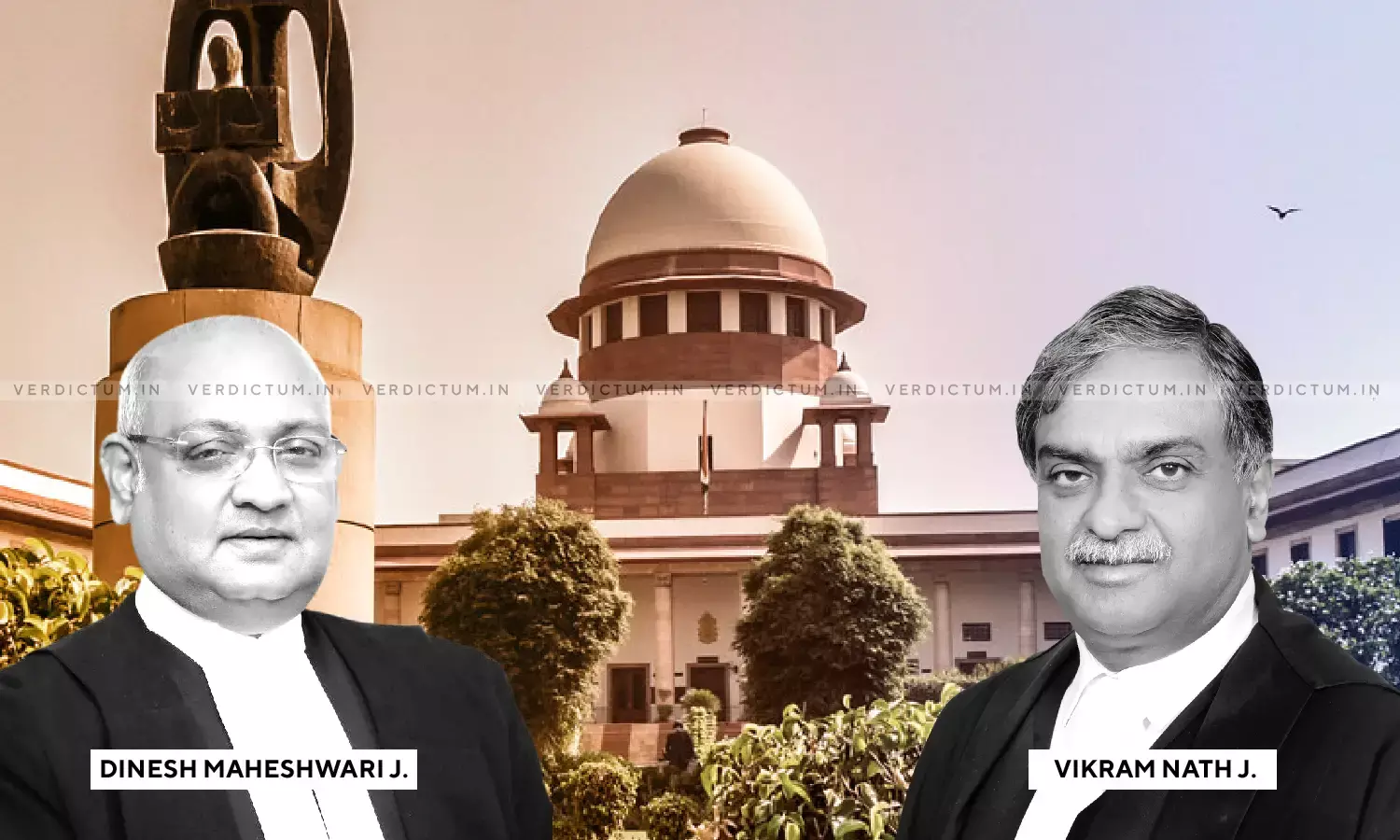No Justification For Not Paying Compensation In Return Of Land Acquired is Violative Of Article 300A - Supreme Court

A Supreme Court Bench of Justice Dinesh Maheshwari and Justice Vikram Nath set aside an order passed by the Division Bench of the Kerala High Court, while upholding the order passed by the Single Judge of the High Court, regarding the applicability of Article 300A of the Constitution on farmers' land which had been utilized for the construction of a road without the payment of compensation.
The Bench in this context observed -
"Construction/widening of road no doubt would be a public purpose but there being no justification for not paying compensation the action of the respondents would be arbitrary, unreasonable and clearly violative of Article 300-A of the Constitution."
Article 300A of the Constitution is the Right to Property, and states that "No person shall be deprived of his property save by authority of law."
The Appellants owned the disputed land, which was situated within the territorial limits of the Panchayat. The Panchayat had requested the Appellants to utilize the land for the construction of a road, while promising adequate compensation. However, although the road was constructed, no compensation was paid. When no heed was paid to the Appellants' requests, they approached the High Court.
The Single Judge of the High Court opined that since there was no material on record to indicate that the Appellants had voluntarily surrendered their land or given up their right to claim compensation, and in accordance with the mandate of Article 300A of the Constitution, the Appellants would be entitled to compensation for the land utilized for the construction of the road. The Panchayat carried the matter in an appeal.
The Division Bench of the High Court opined that the burden of proof was on the Appellants to prove that they were given the assurance of a suitable compensation, and since the Appellants had failed to discharge their burden, their claim could not succeed. Aggrieved, the Appellants filed an appeal before the Supreme Court.
The Supreme Court opined that it was not disputed that the Appellants had indeed been deprived of their land in the process of constructing the road, and since they were farmers, depriving them of their part of their livelihood and also of their property without authority of law would be violative of Article 21 and Article 300A of the Constitution
With regard to the Panchayat's contention that the Appellants had voluntarily surrendered their rights for no consideration, the Supreme Court opined that the burden of establishing the voluntary surrender would be on the Panchayat, and that the Division Bench had proceeded on a wrong premise by shifting the burden of the Appellants.
Further, the Court found the Division Bench's reasoning that the Appellants had made a stale claim and only claimed compensation as an afterthought was unsustainable, as the Appellants had made no delay in agitating for their rights.
The Supreme Court also opined that the Division Bench's observation that there was no scheme for road development by giving price of the land acquired was contrary to the mandate of Article 300A.
To that end, it was held that "If there was no scheme, then it was the fault of the State or the Panchayat. To say that there was no scheme is one thing and owner of the land surrendering his land voluntarily without payment of compensation would be different. If there was no such scheme then all the more it was necessary to get the surrender, if any, documented, by the Panchayat/Municipality or the State or the PWD, as the case may be."
The Supreme Court found that the Division Bench had taken a view that was too technical, as it cannot be expected from farmers to be conversant with the intricacies of the law.
Referring to Article 300A of the Constitution, the Bench held that "Article 300A clearly mandates that no person shall be deprived of his property save by authority of law. In the present case, we do not find, under which authority of law, the land of the appellants was taken and they were deprived of the same. If the Panchayat and the PWD failed to produce any evidence that appellants have surrendered their lands voluntarily, depriving the appellants of the property would be in violation of Article 300-A of the Constitution."
To that end, the Bench relied on the case of K.T. Plantation Private Limited and Anr. vs. State of Karnataka, and found that although the construction of the road was a public purpose, there being no justification for not paying compensation the action of the Respondents would be arbitrary, unreasonable and clearly violative of Article 300-A of the Constitution.
Therefore, the Supreme Court allowed the appeal, and set aside the order and judgment of the Division Bench of the High Court, while upholding the order and judgment of the Single Judge.
Click here to read/download the Judgment

